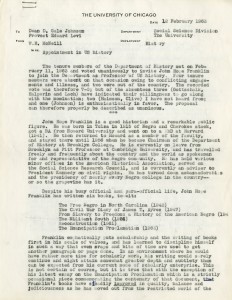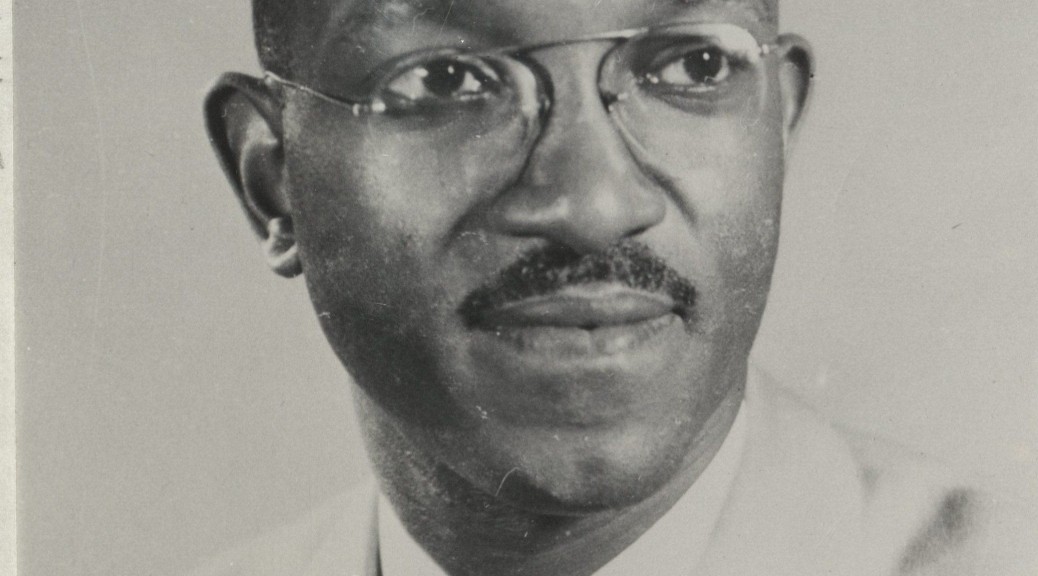I – Illinois (Chicago)
John Hope Franklin and his wife Aurelia lived in the state of Illinois, specifically in Chicago, for several years. In 1964, Franklin joined the faculty at the University of Chicago, where he served as Chair of the History Department from 1967-1970, and was the John Matthews Manly Distinguished Service Professor from 1969-1982, he became Professor Emeritus in 1982.

During his tenure at the University of Chicago, Franklin published Color and Race (1969), and Illustrated History of Black Americans (1970), Racial Equality in America and Southern Odyssey: Travelers in the Antebellum North (1976). Franklin also served as advisor to over twenty PhD graduates from the department of history, including noted scholars Genna Rae McNeil, Paul Finkelman, Juliet E.K. Walker, Loren Schweninger, and Alfred Moss.

Franklin was also entrenched in the community, working on boards and committees of the Chicago Symphony Orchestra, Chicago Public Library, Chicago Urban League and NAACP, and DuSable Museum.

In 1984, four years after John Hope Franklin moved back to Durham, NC, Franklin received the Illinois Humanities Council Public Humanities Award. This annual award is presented to an organization or an individual who has made significant contributions to the civic and cultural life of the State of Illinois through the humanities.
This series is a part of Duke University’s John Hope Franklin@100: Scholar, Activist, Citizen year-long celebration of the life and legacy of Dr. John Hope Franklin
Submitted by Gloria Ayee, Franklin Research Center Intern


